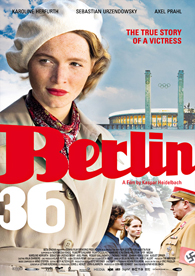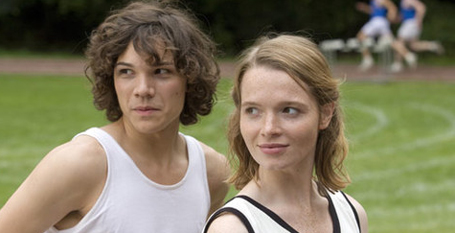
In Berlin 36, all three realities come crashing together when the Nazi government is forced by the International Olympics Committee to include its Jewish high jump champion, Gretel Bergmann, in the German Olympic team. Adolf Hitler would not be pleased to hang a medal around her neck, and the Nazi party’s sports ministry finds the only person who has a chance to beat her: Marie Kettler, a proper Aryan whose mother had wanted so much to have a daughter, she didn’t let facts (or the happiness of her son) come in her way when the stork delivered a strapping boy.
The Jewish and cross-dressing pair make a most unhappy duo, and their misery is compounded by how much their torn between their love for the sport, their patriotism, and their hatred for the ruling party. That and being misfits.
Even though the film is more or less a historical account, the script manages to weave a sense of drama and suspense. How will Gretel and Marie work out their complicated relationship with the state? How do they come to terms with each other as roommates? How will the Nazi party get rid of Gretel? How will both athletes survive their maddening imprisonment in the German training camp?
While being a conventional and at times melodramatic account, the direction is solid and brings out the chemistry between its principal actors. Visually, the cinematography offers glimpses and echoes of Leni Reifenstahl’s Olympia, a glorious documentary on the state-orchestrated extravaganza that even Zhang Yimou couldn’t duplicate in 2008.












 打印版本
打印版本










读者回应
抢先发表第一个回应吧!
请先登入再使用此功能。